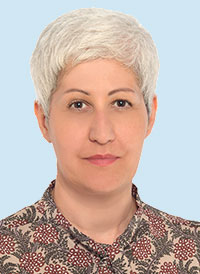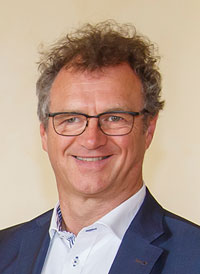Safiyat Khasanova, University of Hohenheim alumna
 „I completed a postdoctoral fellowship program at the University of Hohenheim in time frame 1.09.2014-1.07.2015 at the Institute of Animal Science (460), Department of Livestock Population Genomics (460h), supervisor Grashorn Michael A., apl. Prof., Dr. sc. agr. habil. Indeed, organic food is gaining more and more consumers in all over the world, and many people are ready to pay for organic approach to food production as it perfectly aligns to the conception of sustainable development. However, due to number of reasons, not all countries have a developed market of organic food still. Thereby, I studied perspectives of organic food market development and organic farming in Russia (Krasnodar region). Research was focused on people's awareness and attitudes towards organic agriculture in general as well as their quality preferences and readiness to buy organic products. The findings show that majority of respondents consider organic products useful for health and would prefer to buy local and certified products, which could be a good incentive for farmers, including those who plan to switch to organic production methods. Besides, the research has disclosed the necessity of the certain communication policies in order to avoid an information asymmetry in organic products promotion. I currently work for “Cargill” as Feed Demand Analyst for Russia-Ukraine-Kazakhstan-Belarus. I wished to express my thanks to the University which hosted me, to people who shared with me the expertise and knowledge, and wished to make a small contribution to the development of young students and scientists believing that science and culture really unite people from over the world.” | Picture: Safiyat Khasanova
„I completed a postdoctoral fellowship program at the University of Hohenheim in time frame 1.09.2014-1.07.2015 at the Institute of Animal Science (460), Department of Livestock Population Genomics (460h), supervisor Grashorn Michael A., apl. Prof., Dr. sc. agr. habil. Indeed, organic food is gaining more and more consumers in all over the world, and many people are ready to pay for organic approach to food production as it perfectly aligns to the conception of sustainable development. However, due to number of reasons, not all countries have a developed market of organic food still. Thereby, I studied perspectives of organic food market development and organic farming in Russia (Krasnodar region). Research was focused on people's awareness and attitudes towards organic agriculture in general as well as their quality preferences and readiness to buy organic products. The findings show that majority of respondents consider organic products useful for health and would prefer to buy local and certified products, which could be a good incentive for farmers, including those who plan to switch to organic production methods. Besides, the research has disclosed the necessity of the certain communication policies in order to avoid an information asymmetry in organic products promotion. I currently work for “Cargill” as Feed Demand Analyst for Russia-Ukraine-Kazakhstan-Belarus. I wished to express my thanks to the University which hosted me, to people who shared with me the expertise and knowledge, and wished to make a small contribution to the development of young students and scientists believing that science and culture really unite people from over the world.” | Picture: Safiyat Khasanova
University of Hohenheim alumnus
"A long, long time ago, at some point in the early 1990s, I studied economics at the University of Hohenheim. Today I am head of the commercial department of a small company that provides investment management and asset management services to its clients in the commercial real estate sector. I donated to the Germany Scholarship because talent has to be promoted and I feel a bond with the University of Hohenheim."
Patrik Müller, University of Hohenheim alumnus
 "From October 1986 to April 1993 I attended the Diplom program "General Agricultural Sciences, specialization in Economics and Social Sciences of Agriculture". I wrote my Diplom thesis in agricultural market theory about the purchasing behavior of organic consumers. Besides that, I was involved in student groups at the AStA. For example, we founded the TMS Cafeteria with a small group of students. In 1990 we wanted to get the Studierendenwerk to use more organic food in the normal cafeteria and Mensa and to switch from plastic cups to reusable cups when serving coffee.
"From October 1986 to April 1993 I attended the Diplom program "General Agricultural Sciences, specialization in Economics and Social Sciences of Agriculture". I wrote my Diplom thesis in agricultural market theory about the purchasing behavior of organic consumers. Besides that, I was involved in student groups at the AStA. For example, we founded the TMS Cafeteria with a small group of students. In 1990 we wanted to get the Studierendenwerk to use more organic food in the normal cafeteria and Mensa and to switch from plastic cups to reusable cups when serving coffee.
I am the managing partner of Ökoland GmbH Nord, a marketing company for organic food.
In my view, the ecologically oriented departments do not have nearly enough scholarships, even though we have an unbelievably large demand for ecologically trained specialists. As an eco-entrepreneur, I would like to make a contribution to my former university's pioneering work in this area in the future. My scholarship holder deals with ecological issues in agriculture."